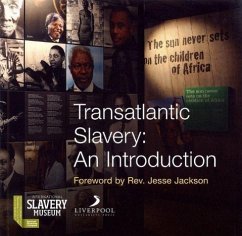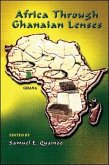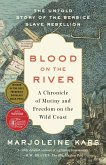Over a four-hundred-year period at least twelve million Africans were taken into slavery in the largest forced migration in human history. This introductory book draws upon a wealth of material held by the International Slavery Museum, tells their story and examines the legacy of this bloody trade.
Between 1500 and 1870, millions of Africans were transported across the Atlantic by European traders to work as slaves in the Americas. They were shipped in conditions of great cruelty to lead lives of hard, unremitting labour, subject to degradation and violence. The products of their labour - primarily sugar, coffee and tobacco - were sent back to Europe and the profits derived from slavery helped fuel European economic development in the 18th and 19th centuries. The cost in lives and human suffering was enormous. First published to accompany a permanent gallery in the Merseyside Maritime Museum, this reissue of Transatlantic Slavery with new material documents this era through essays on women in slavery, the impact on West and Central Africa, and the African view of the slave trade. Richly illustrated, it reveals how the slave trade shaped the history of three continents-Africa, the Americas, and Europe-and how all of us continue to live with its consequences.
Between 1500 and 1870, millions of Africans were transported across the Atlantic by European traders to work as slaves in the Americas. They were shipped in conditions of great cruelty to lead lives of hard, unremitting labour, subject to degradation and violence. The products of their labour - primarily sugar, coffee and tobacco - were sent back to Europe and the profits derived from slavery helped fuel European economic development in the 18th and 19th centuries. The cost in lives and human suffering was enormous. First published to accompany a permanent gallery in the Merseyside Maritime Museum, this reissue of Transatlantic Slavery with new material documents this era through essays on women in slavery, the impact on West and Central Africa, and the African view of the slave trade. Richly illustrated, it reveals how the slave trade shaped the history of three continents-Africa, the Americas, and Europe-and how all of us continue to live with its consequences.







